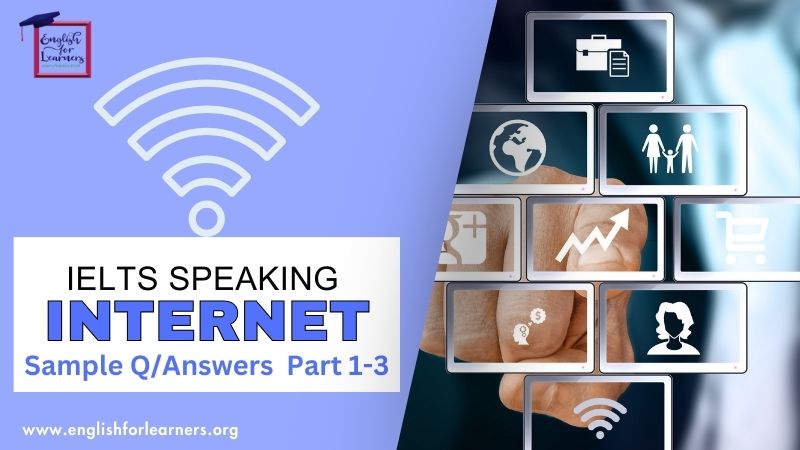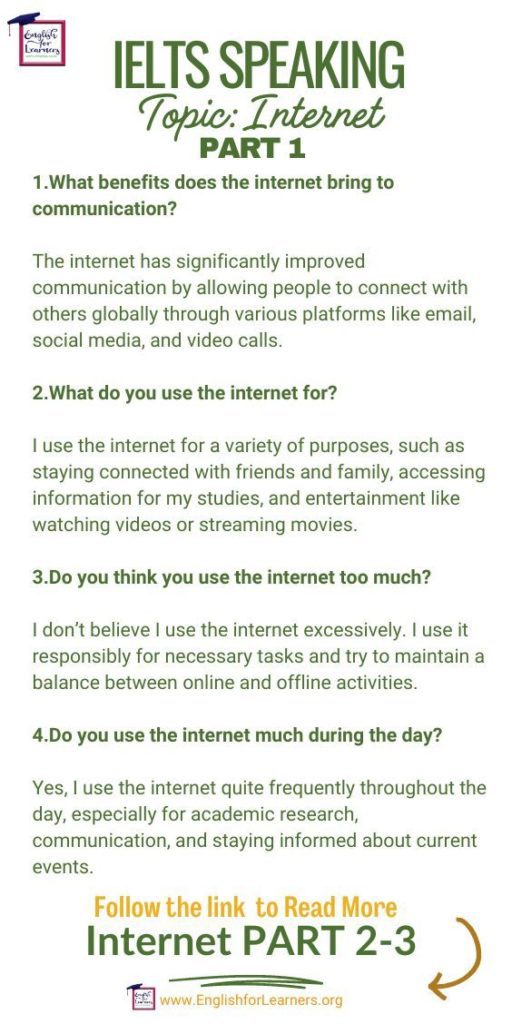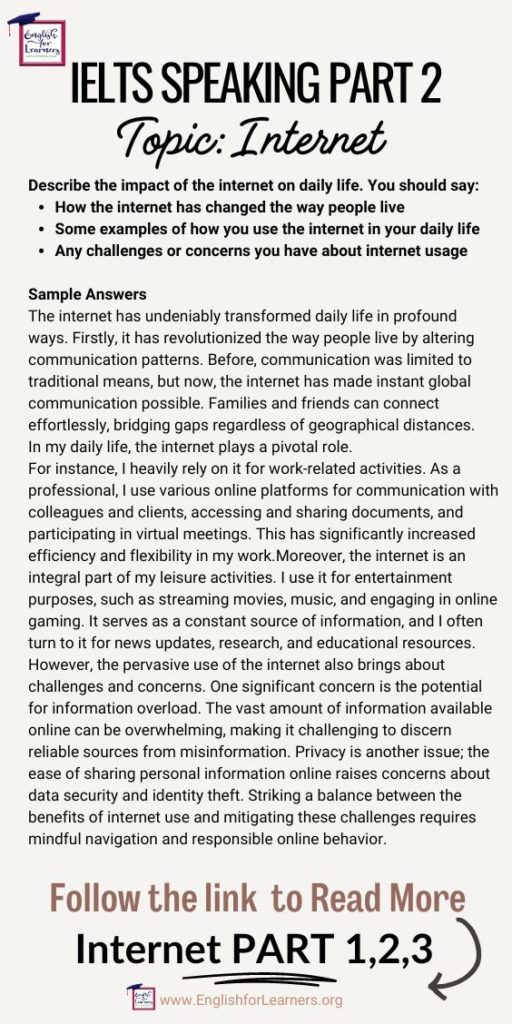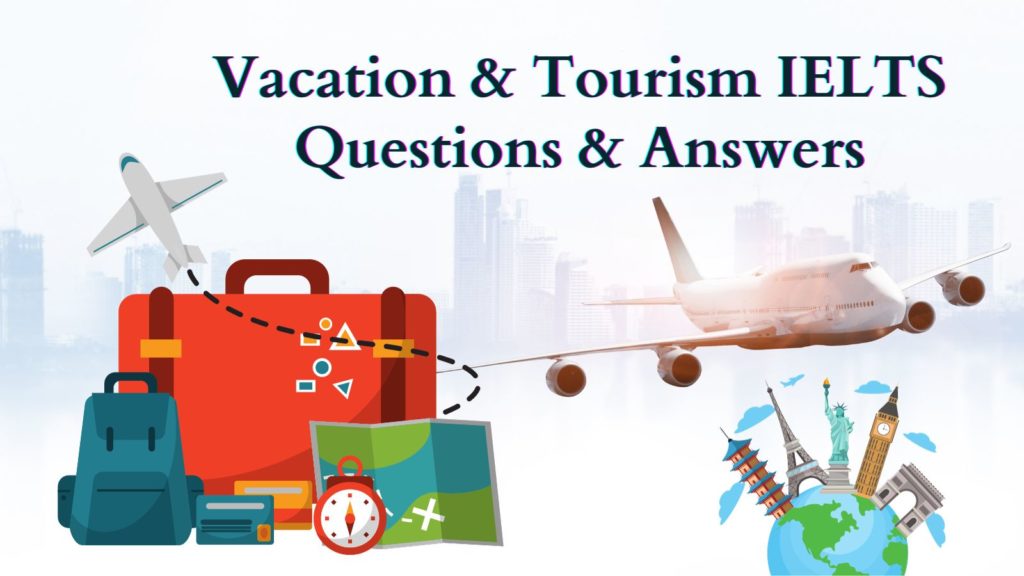
The topic of the internet IELTS Speaking is frequently discussed in various English proficiency tests, including IELTS. The internet has become an integral part of our daily lives, as we use it consistently for communication, work, business, entertainment, and information. Answering questions about the internet is, therefore, manageable based on our everyday experiences and knowledge.
In part 1 of the IELTS Speaking test, you are asked general questions about your interests and hobbies. You might get questions about the internet . Here are some example for IELTS Speaking Test Part 1 questions and sample answers.

Internet IELTS Speaking Test Part 1 Sample Q/A
1.What benefits does the internet bring to communication?
The internet has significantly improved communication by allowing people to connect with others globally through various platforms like email, social media, and video calls.
2.What do you use the internet for?
I use the internet for a variety of purposes, such as staying connected with friends and family, accessing information for my studies, and entertainment like watching videos or streaming movies.
3.Do you think you use the internet too much?
I don’t believe I use the internet excessively. I use it responsibly for necessary tasks and try to maintain a balance between online and offline activities.
4.Do you use the internet much during the day?
Yes, I use the internet quite frequently throughout the day, especially for academic research, communication, and staying informed about current events.
Internet IELTS Speaking Test Part 2 Cue card
Describe the impact of the internet on daily life. You should say:
- How the internet has changed the way people live
- Some examples of how you use the internet in your daily life
- Any challenges or concerns you have about internet usage
Sample Answers
The internet has undeniably transformed daily life in profound ways. Firstly, it has revolutionized the way people live by altering communication patterns. Before, communication was limited to traditional means, but now, the internet has made instant global communication possible. Families and friends can connect effortlessly, bridging gaps regardless of geographical distances.
In my daily life, the internet plays a pivotal role. For instance, I heavily rely on it for work-related activities. As a professional, I use various online platforms for communication with colleagues and clients, accessing and sharing documents, and participating in virtual meetings. This has significantly increased efficiency and flexibility in my work.
Moreover, the internet is an integral part of my leisure activities. I use it for entertainment purposes, such as streaming movies, music, and engaging in online gaming. It serves as a constant source of information, and I often turn to it for news updates, research, and educational resources.
However, the pervasive use of the internet also brings about challenges and concerns. One significant concern is the potential for information overload. The vast amount of information available online can be overwhelming, making it challenging to discern reliable sources from misinformation. Privacy is another issue; the ease of sharing personal information online raises concerns about data security and identity theft. Striking a balance between the benefits of internet use and mitigating these challenges requires mindful navigation and responsible online behavior.
In short, the internet has reshaped the way we live, offering extraordinary connectivity and access to information. While it brings numerous advantages, it is crucial to address the associated challenges to ensure a safe and balanced use of this powerful tool.

Internet IELTS Speaking Part 3 Follow-up Discussion
1.How can the internet help students with their studies?
Sample Answer
The internet is indeed a valuable resource for students, offering a multitude of benefits for their educational pursuits. Firstly, it provides unparalleled access to a vast amount of educational material. Online platforms such as Khan Academy, Coursera, and educational YouTube channels offer a diverse range of courses, lectures, and tutorials on various subjects.
Furthermore, the internet facilitates collaborative learning through platforms like Google Workspace and Microsoft Teams. Students can collaborate on group projects, share documents in real-time, and engage in discussions without being constrained by physical proximity.
Additionally, the internet offers platforms for interactive study groups. Online forums like Reddit, Quora, and specialized study groups on platforms like Discord provide spaces where students can ask questions, discuss complex topics, and seek assistance from peers and experts alike.
2.How reliable do you think information from the internet is? Why? What about the news on the internet?
Sample Answer
While the internet is a useful information source, not all sources are equally reliable. It’s crucial to be careful and check where the information comes from, especially with news, as false information can quickly spread.
For example, on social media, during emergencies, people may share unverified news that can cause unnecessary panic. Similarly, on forums and user-generated platforms, misinformation can easily spread, and health-related false information can be harmful during health crises. Additionally, some websites may look reliable but lack proper fact-checking, leading to biased or unverified news, particularly in politics.
In short, while the internet has lots of information, it’s important to be cautious and check the credibility of sources. The examples show why it’s essential to be careful, especially when it comes to news online.
3.Can you trust other people’s travel Journals on the internet?
Sample Answer
Well, trusting other people’s travel journals on the internet really depends on the reliability of the source. For instance, if I come across a travel blog written by an experienced traveler, someone who shares detailed information about the places they’ve visited, includes practical tips, and provides genuine recommendations, I would likely trust that source. You know, a blog that has photos, personal experiences, and honest reviews about accommodations and attractions tends to be more reliable.
However, there are cases where you need to be a bit cautious. If a travel journal seems too promotional, lacks specific details, or praises everything without any downsides, it might be less trustworthy. For instance, I once found a review that only had positive comments about a destination but didn’t mention any challenges or drawbacks. It made me wonder about the credibility of the information.
One more thing that I would like to mention is the story telling aspect of the travel journals. Some people narrate false stories and incident that might make their writing more fun and interesting. In that case, I mean you cannot tell if the incident they are narrating is true or to how much extent.
In a nutshell, I would say that do seek information from the travel journals of other people but be aware that it is not an official information and might be untrue to a certain extent.
What problems are associated with the Internet?
Sample Answer
Well, you know, the internet is a mixed bag of goodies and challenges. It’s fantastic for finding information and connecting with people, but then there’s the privacy invasion. Sometimes, I search for something innocent, like a new pair of shoes, and suddenly every website seems to know my shoe size!And then, there’s the cybersecurity drama – those suspicious emails that try to trick you into sharing your secrets. I once got an email claiming I won a lottery I never entered.
But it’s not just about personal stuff. Information overload is real. You’re just looking for a simple recipe, and the internet bombards you with a thousands of options. Choosing becomes an adventure in itself. And then there are fake news… During the pandemic, everyone turned into an armchair expert, sharing all sorts of bizarre health tips on social media. It’s like separating fact from fiction.
Online bullying is an issue too. People can be harassed online, affecting their mental health. And spending too much time online? Many of us are guilty of it, impacting productivity and relationships.
So, while the internet is great, it’s essential to be aware of these everyday issues and navigate it wisely.


